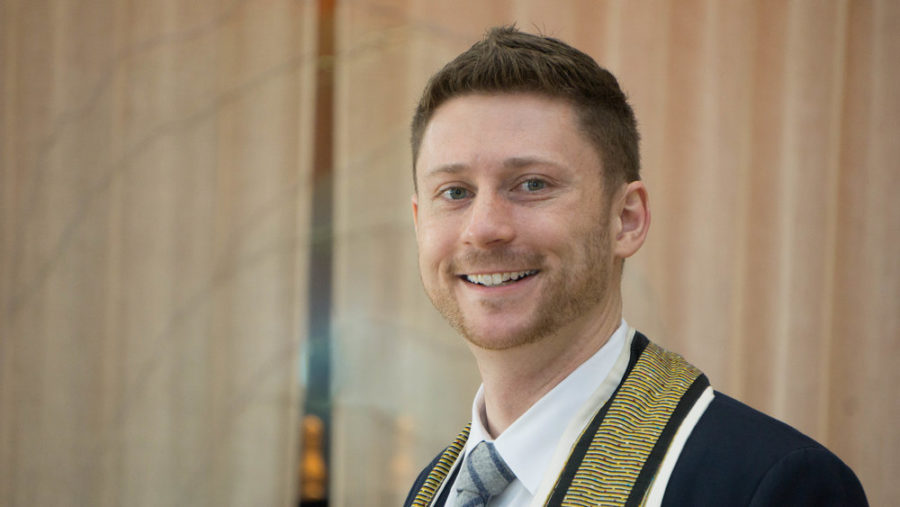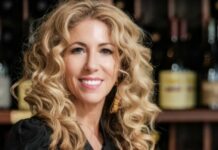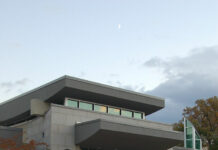
As we count down to Rosh Hashanah, we’d like to introduce you to five new rabbis in the Washington area who are gearing up for their first high holidays here.
One thing that stood out about Bethesda Jewish Congregation to Rabbi Eric Abbott was how it welcomed interfaith families.
“BJC is phenomenal in its interfaith work, fully accepting of interfaith couples and families,” said Abbott. “We’re like, ‘Yeah, you’re part of our community, come be a member, doesn’t matter if you’re Jewish or not.’”
Abbott is married to Rabbi Eliana Fischel of Washington Hebrew Congregation. They have two children.
Abbott came from an interfaith family himself. He grew up in Cranston, R.I. “We were one of those households where we lit the Chanukah candles and had a Christmas tree, and that was it. No church, no synagogue.”
The family became more drawn to synagogue life after Abbott lost all four of his grandparents in a span of less than two years, by the time he was 7. Abbott says that his family was seeking a sense of community. His father converted to Judaism when Abbott was in fifth grade.
“I am a product of an interfaith family that stopped being an interfaith family when my dad converted,” said Abbott. “I’m sure that influenced me.”
Bethesda Jewish Congregation shares space with a church, Bradley Hills Presbyterian Church, and a mosque, Maqaame Ibrahim Islamic Center. They partner on an annual interfaith Thanksgiving service. They have also been working to house refugees in Montgomery County, including one Afghan family the congregations are working to bring in.
Abbott noted “the positive that comes along with people sharing ideas together, and people in this community love the fact that they can go to an event … and they’re just sitting there with their other faith brethren. And it’s just really beautiful.”
Abbott stressed the importance of acknowledging the modern reality of interfaith relationships and families, adding that “we need to lean into it, and accept it, and say, ‘Actually, this isn’t a bad thing, this is a good thing.’”





